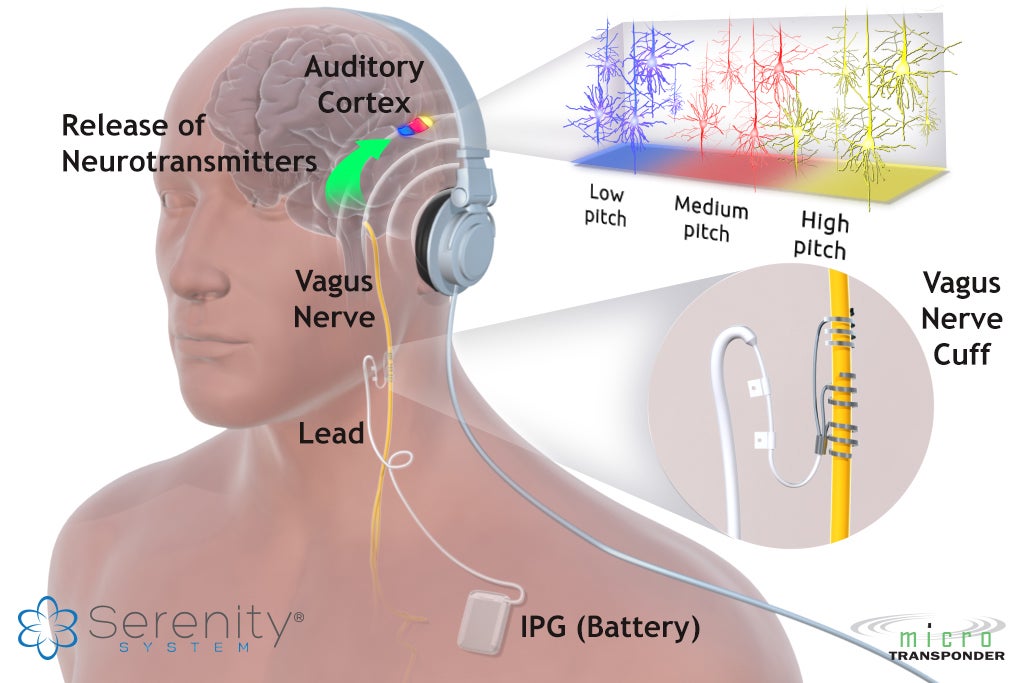The Independent's journalism is supported by our readers. When you purchase through links on our site, we may earn commission.
New audio treatment could cure tinnitus by 'remodelling' the brain
Patients with an electronic cuff fitted to their vagus nerve are played frequencies to teach the brain which sounds to listen to and which to ignore

Your support helps us to tell the story
This election is still a dead heat, according to most polls. In a fight with such wafer-thin margins, we need reporters on the ground talking to the people Trump and Harris are courting. Your support allows us to keep sending journalists to the story.
The Independent is trusted by 27 million Americans from across the entire political spectrum every month. Unlike many other quality news outlets, we choose not to lock you out of our reporting and analysis with paywalls. But quality journalism must still be paid for.
Help us keep bring these critical stories to light. Your support makes all the difference.
A nerve implant that takes advantage of the brain’s plasticity to retrain hearing could cure tinnitus, providing relief to the one to two per cent of world population for whom the condition is a bad enough to require treatment.
Tinnitus, which is usually caused by exposure to loud noises but can also arise from normal aging, is thought to be caused by damage to the brain’s auditory cortex.
Neurons in different parts of the cortex activate when exposed to different frequencies, but when the sound being heard is extreme, the brain tries to compensate and block it out. It’s thought this can dull parts of the cortex while other areas become over sensitive – leading to the constant perception of sound when there is none.
The Serenity System developed by Texas-based company MicroTransponder aims to fix that by ‘retraining’ the cortex to hear all frequencies normally.

As reported by the New Scientist, the treatment consists of software that plays specific frequencies and an electronic cuff which is affixed to the vagus nerves – one of the twelve cranial nerves that connect the brain to the major organs.
The person receiving the treatment listens to various frequencies that stimulate their tinnitus while the cuff sends small electrical pulses down the vagus nerve. This triggers the release of chemicals that speed the brain’s capacity to remodel itself.
Trials of the treatment have been successful in rats and if human trials currently underway pan out the same MicroTransponder thinks the Serenity System could be offered to consumers from the middle of 2015. Listen out for more then.
Join our commenting forum
Join thought-provoking conversations, follow other Independent readers and see their replies
Comments